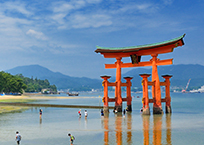General Information
About Japan
Local Time
Japan Standard Time is GMT+9. The time difference for major cities is shown below (decreased by 1 hour during Daylight Saving Time):
- Beijing: -1 hour
- Los Angeles: -17 hours
- New York: -14 hours
- London: -9 hours
- Frankfurt: -8 hours
- New Delhi: -3.5 hours
- Singapore: -1 hour
- Seoul: 0 (same)
- Sydney: +1 hour
Climate
The temperature in Tokyo during the period of the Meeting ranges between 24 - 31 degrees Celsius.
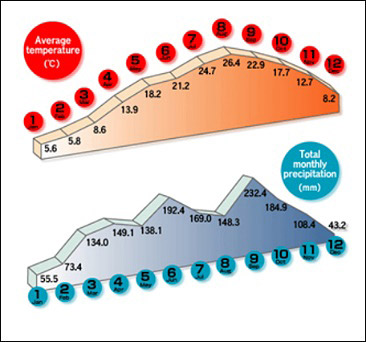

Electricity
Electric current is uniformly 100 volts AC throughout Japan, but with two different cycles: 50 in eastern Japan including Tokyo and Yokohama, and 60 in western Japan including Kyoto, Osaka and Nara. Leading hotels in major cities have two outlets of 100 and 230 volts, but the sockets usually only accept two-leg plugs.
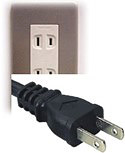
Passport and Visa
To visit Japan, you must have a valid passport. A visa is required for citizens of countries that do not have visa exemption agreements with Japan. Please contact the nearest Japanese embassy or consulate for visa requirements.
Insurance
The Organizing Committee can accept no responsibility for accidents or damage to private property of participants. Please make your own arrangements for health insurance and any other necessary insurance.
Currency
CoinMill.com - The Currency Converter
Currency in Japan is the yen (JPY). Notes are available in denominations of 10,000, 5,000, 2,000 and 1,000 yen. Coins are minted in denominations of 500, 100, 50, 10, 5, and 1 yen. Exchange at the airport is recommended for your convenience. Most foreign currencies and travelers' checks can be exchanged at authorized foreign exchange banks and hotels. However, we highly recommend purchasing travelers' checks or cash in yen before leaving your home country. A passport may be required for currency exchange services.
- Japanese notes are:
10,000 / 5,000 / 2,000 / 1,000 - Coins are:
500 / 100 / 50 / 10 / 5 / 1
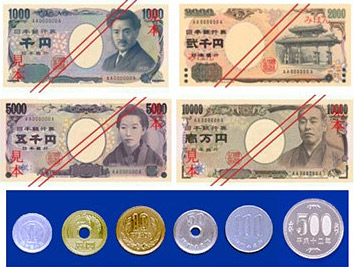
Credit Card
American Express, Diners Club, Visa and MasterCard are widely accepted at hotels, department stores, shops and restaurants.
Banks
Banks are open from Monday to Friday from 09:00 - 15:00, and you can exchange money at foreign exchange banks, but there are not many of them. Instead, you can withdraw JPY cash from ATM machines in convenience stores such as Seven-Eleven.
Tipping
There is no custom of tipping in Japan. Instead, at places such as high class restaurants, bars and hotels, a 10% service charge is usually added to your bill.
Shopping
Shops and other sales outlets in Japan are generally open on Saturdays, Sundays and national holidays as well as weekdays from 10:00 to 20:00. Department stores, however, are closed on one weekday, differing by store, and certain specialty shops may not open on Sundays and national holidays.
Cell Phones
Cell phone rental is recommended, as most foreign phones are not compatible with Japan's network. Cell phone rental shops are conveniently located at Narita and other international airports. Please check with your network provider prior to your departure.
Public Transportation
For general transport, taxis are convenient, but can be costly. JR railroad has easy access to and from Shinbashi station.
About Tokyo
Tokyo is the Capital and also the largest city in Japan. Tokyo consists of 23 different "neighborhoods" and tourists can enjoy the different characteristics of each one: from the young shoppers' paradise of Harajuku, to the technological hub of Akihabara, to the luxurious Ginza, Tokyo offers limitless opportunities. Tokyo's traditional hospitality combined with modern facilities makes it a popular site for international conventions. Its tourist locations in Japan makes it a perfect jump-off point.
Tokyo Highlights
- Tokyo Tower
- Built in 1958, Tokyo Tower serves as a symbol of Tokyo’s rebirth after World War II. The towering structure stands 333 meters tall, becoming a ubiquitous photo spot for tourists. Two observation decks provide extensive views across the city and a four-story complex on the ground floor offers shopping, food, and entertainment.
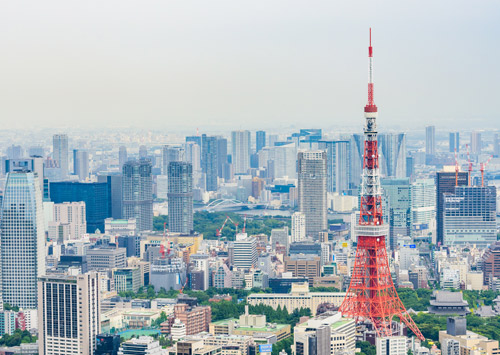
- Tokyo Skytree
- The Tokyo Skytree was recently opened in 2010 making it the tallest building in Japan standing 634m high (antenna spire). The Skytree lights up purple and blue rotating each day, and it has incredible views of the metropolitan city. There are also many shops and restaurants for you to check out.
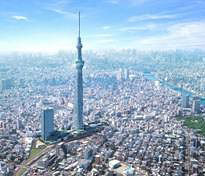
- Imperial Palace
- No visit to Tokyo is complete without stopping by the Imperial Palace - the primary residence of the current Emperor of Japan. It is filled with several beautiful gardens. Why not take a stroll around the Imperial Palace and imagine about historical Tokyo?
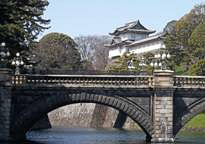
- Asakusa
- Asakusa is home to one of Tokyo's most famous temples, known as Sensoji. The stark red color is iconic and complemented by its neighboring pagoda: a great combination for taking incredible pictures. There are also many local souvenir shops located near the temple.
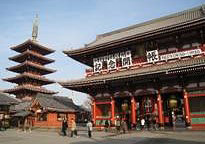
Nearby Tourism Opportunities
- Yokohama (30 min. away)
- Only 30 minutes away from Tokyo is the must-visit city, Yokohama. Enjoy this exciting, historical port city - stroll around the Sankeien Garden and enjoy lunch at China Town. You can also ride the huge ferris wheel that lights up Yokohama's night sky or take a cruise down Tokyo Bay.
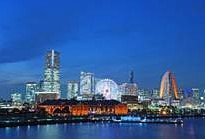
- Kamakura (under 60 min.)
- A half-hour train journey will take you to the ancient Japanese capital of Kamakura. It is home to thousand-year-old temples and The Great Buddha, a bronze statue 11.4 meters (37.4 ft.) in height depicting Buddha in a seated meditative pose.
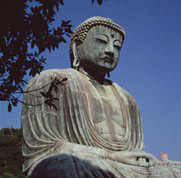
- Mt. Fuji and Hakone (90-120 min. away)
- Just an hour and a half away lies one of the most famous tourist resorts in Japan. Surrounded by scenic mountains, Hakone offers the unique scenery of placid Lake Ashi (Ashi-no-ko) at the foot of Mt. Fuji. It also boasts an abundance of hot-springs scattered along its streams and rivers, as well as many museums and amusement facilities.
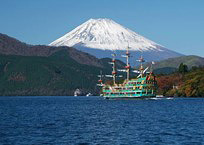
Japan Highlights
- Kyoto
- Kyoto was the capital of Japan for over 1,000 years, beginning in 794, when Emperor Kammu made the city the seat of his Imperial court and the center of Japan's political world. This long and prestigious history led to the development of many of the refined arts we now associate with Japan. Kyoto is dotted with over 2,000 shrines and temples, which contain about 20% of Japan's National Treasures and about 14% of its Important Cultural Assets; 17 places in the city are UNESCO World Heritage Sites.
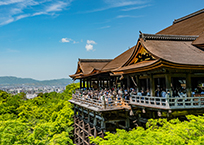
- Hiroshima
- Hiroshima is the principal city of the Chugoku Region and home to over a million inhabitants. When the first atomic bomb was dropped over Hiroshima on August 6, 1945, the city became known worldwide for this unenviable distinction.
Destroyed monuments of Hiroshima's historical heritage, like Hiroshima Castle and Shukkeien Garden, were reconstructed. In the center of the city a large park was built and given a name that would reflect the aspirations of the re-born city: Peace Memorial Park.
